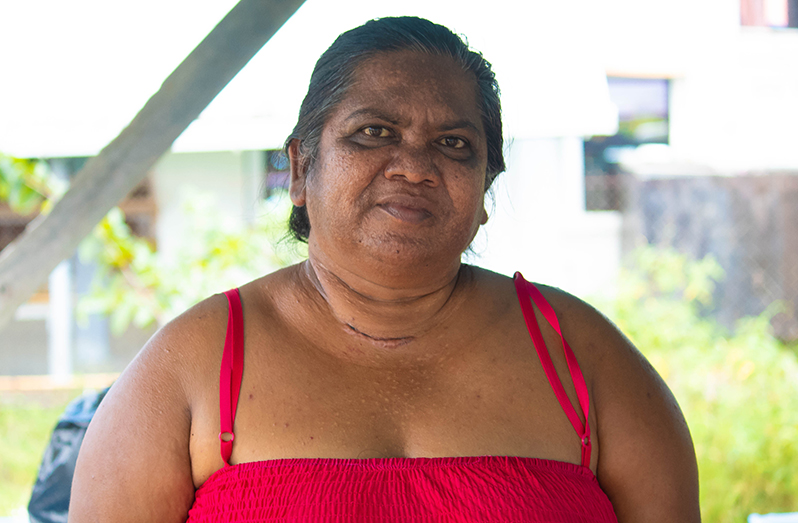The inspiring story of Lolita
Sometimes, certain circumstances require immense strength from the human spirit. From domestic violence to periods of poverty, many people are faced with unimaginable challenges. Palmyra resident Deokie Rookram or Lolita as she is called, is one such woman. She has survived homelessness, troubling relationships and tough times.
Lolita grew up in rural little Palmyra, when the community was made up of mostly farmers and sugar cane workers. But not every home was a happy one. As Lolita expressed, growing up for her was a Herculean task because of the constraints domestic issues placed on her and her siblings. “It was very hard because my parents had a broken home. And that made it really hard,” she said.
Lolita admits that today’s Palmyra is nothing like the one she grew up knowing. In those days, she said, most people led simple, quiet lives, surviving and making do with what they had. The change in healthier family dynamics is also something Lolita praises. Lolita’s parents separated while she and her younger siblings were still children.
“My mother and father separate, and we lived with grandparents. I have three sisters and me. I am the oldest,” she said. “Back in the day, growing up, we used to go to school but hardly. Actually, I never went to school. That was the kind of parents we had.” As time went on, Lolita says the siblings were forced to split up and fend for themselves.
This, however, has not rendered her incapable of caring for her own children. “My husband used to cut cane. He used to work at GUYSUCO. At the time when the kids were small, I couldn’t go out and work because I didn’t have anyone to help take care of them. But when they got big, I used to work. I used to do domestic work,” said Lolita.
Perhaps most sticking from different perspectives is the way and severity of which these situations are thought about and dealt with. Lolita says, she, like her sisters, simply moved on, saying, “After that we got big, we got married and we just used to live.”

As time went on, after her departure from her family’s home and that of various family members, Lolita took to living in a temple as a last resort. “I was staying in the Hare Krishna temple for about eight years. I was very young, just around nine or ten years at the time. So by the time I came out, I was a teenager.”
Lolita says she went to live in the temple like she did, simply because it was the only place she saw as an escape at the time. “I went to live in the temple because of the situation with my parents and the punishment. We were just having a hard time in the community.” Lolita said.
The temple, which was within walking distance from Lolita’s home, was an interjection before the next period of her life, marriage.
“I got married at the age of seventeen. By the time I was 20 years old, I had my first child,” she said. Contrary to what many people believed or may still believe, this was not the point in life where Lolita would say her life got better. Lolita was married and became a mother at a time when supporting one’s self was hard enough. “It wasn’t too nice; it was hard times. It’s not like when I got married, I got it good. It was like punishing again. It was still a hard life. We had to struggle to get everything: money, food and everything,” Lolita stated. “Even growing up the children and sending them to school, everything was still hard.”
Lolita believes that today is different but certainly better than it was in the past. In drawing a comparison, she says she cannot pinpoint exactly why these days are better, but they certainly are.
Lolita came from a time where self sufficiently was vital and domestic unrest was not yet a taboo. Lolita has pushed and forged on to create a better life for her children and future generations to come.




.png)









